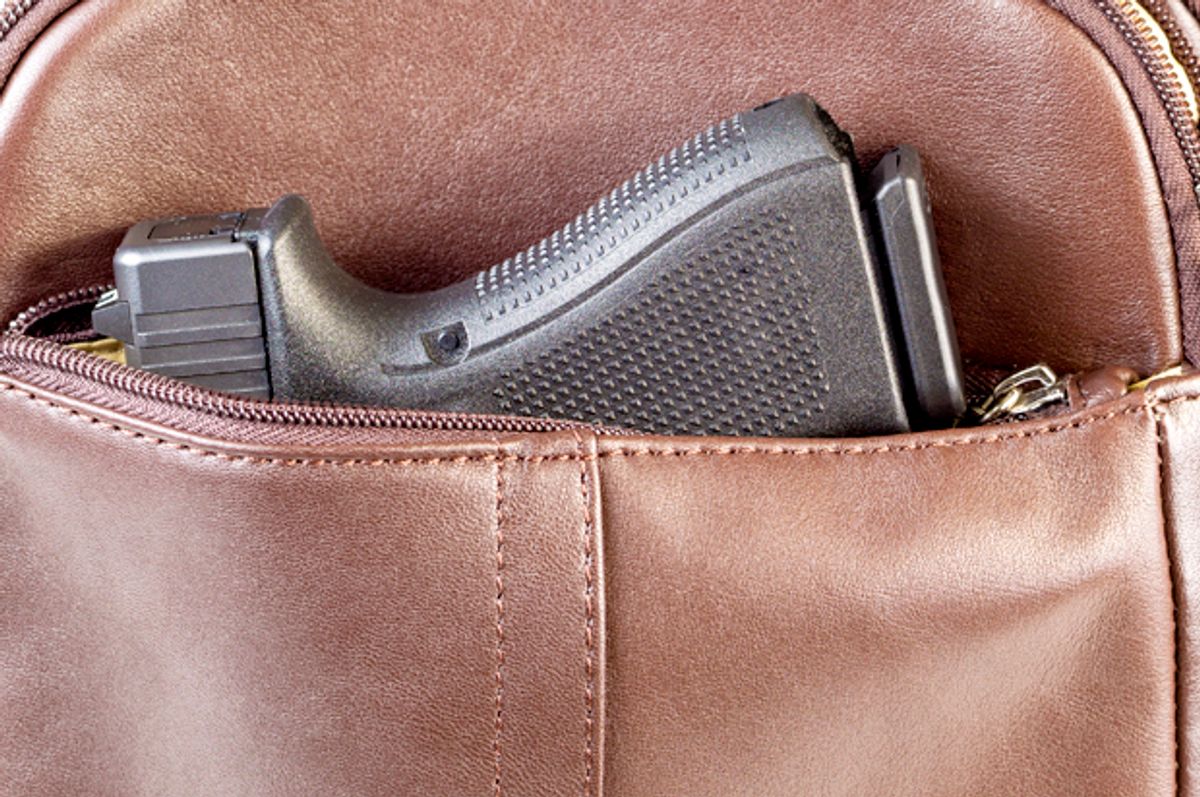The two recent mass shooting incidents in El Paso, Texas, and Dayton, Ohio, are one more manifestation of a culture of violence that threatens not only people’s lives but also the United States’ future as a civilized society.
Although violent incidents occur in other countries, they are not as frequent — or as deadly — as in the United States. The United States has the highest homicide-by-firearms rate among the world’s most developed nations.
Civilians in the United States own over 300 million guns, making Americans the most heavily armed people in the world on a per capita basis. By comparison, the police own approximately one million guns.
The United States doesn’t just have the most guns per capita, but also the weakest gun control laws of any developed country. It is estimated that at least 30% of American adults own a gun, and an additional 11% lives with someone who does.
Nearly 48% of U.S. adults grew up in a household with guns. Nearly two-thirds of Americans who own guns own more than one.
The National Rifle Association (NRA) has been unrelenting in its efforts to influence lawmakers. Although the majority of Americans say that gun laws should be more restrictive than what they are today, lawmakers to a large extent are deaf to these demands.
The Supreme Court is complicit
To make matters even worse for gun control advocates, landmark Supreme Court rulings in 2008 and 2010 dramatically curtailed the authority of state and local governments to limit gun ownership.
In a banal act of macho posturing, almost half of the 50 states in the United States have adopted laws that allow gun owners to carry their guns openly in most public places.
Although self-defense is often cited to justify the people’s right to bear arms, research has shown that a gun kept in a home is 43 times more likely to kill a member of the household or a friend than an intruder.
The number of teenagers who die from gunshot wounds in the United States is greater than those who died from all other causes combined.
According to the U.S. Centers for Disease Control and Prevention, 2017 saw more gun deaths in the United States than in any previous year in decades. Nearly 40,000 Americans who died of gun-related injuries in 2017 represent a 19% increase from 2012 and the highest annual total since the mid-1990s.
The example of other countries
Although many Americans claim that guns are necessary for security, experiences such as in Japan and Australia show that this is not true.
In Japan, which has adopted very strict gun-control laws and where — unlike in the United States — people who purchase guns have several background checks that include mental health, drug use and a relative or a colleague’s perception of the applicant.
The net result of these strict policies is that there were 10 fatalities for a population of 128 million. Australia, which implemented a program against the use of firearms in 1996, saw the fatalities reduced by 40%.
Conditioned from childhood
Americans are exposed to violence since the time they are children. It is estimated that when a child becomes an adult they will have seen as many as 16,000 assassinations and 200,000 acts of violence on television.
Children tend to imitate what they see on television and in the movies, and see violence as the normal way of solving conflicts.
Andrew Exum, who was a soldier in Iraq and in Afghanistan, wrote about his dismay when, on returning to the United States, he noticed the number of billboards on the side of the highways, advertising guns.
And not just guns — these were not .30-06 hunting rifles or shotguns, but rather, the kind of tactical firearms, including assault rifles that I had carried in Iraq and Afghanistan. Why in the world, I thought then, would anyone have a need for such weapons?
Arno Michaelis, a former white supremacist turned anti-hate activist, called on President Donald Trump to stop using fear to motivate people to commit violent acts.
He also said that the government needs to take ownership of guns more seriously, saying that there needs to be federal laws in place to “stop people who are unbalanced from obtaining assault rifles.”
Trump partly to blame
Michaelis also blames Trump for using a kind of rhetoric that increases the possibility for this kind of incidents to take place.
Princeton Professor Eddie Glaude goes one step further in its criticism of the situation. As he commented to a reporter on MSNBC:
America is not unique in its sins as a country. We are not unique in our evils, to be honest with you. I think where we may be singular is our refusal to acknowledge them –and the legends and myths we tell about our inherent goodness to hide and cover and conceal so we can maintain a kind of wilful ignorance that protects our innocence.
This article is republished from The Globalist: On a daily basis, we rethink globalization and how the world really hangs together. Thought-provoking cross-country comparisons and insights from contributors from all continents. Exploring what unites and what divides us in politics and culture. Follow us on Facebook and Twitter. And sign up for our highlights email here.




Shares